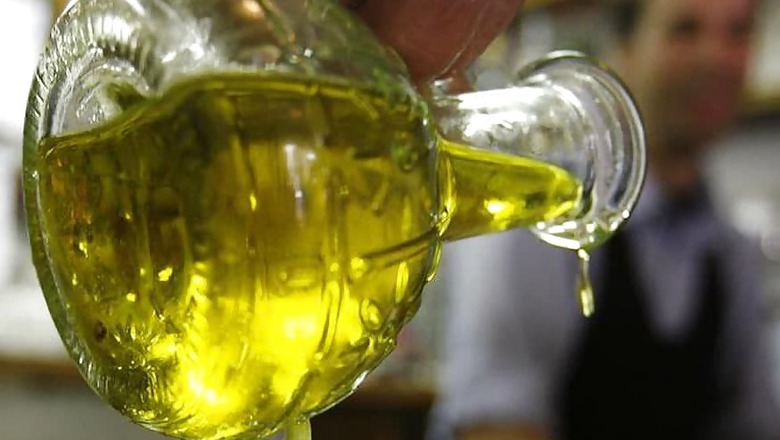
views
A lot of health conscious brigade shells a lot of money on Extra-Virgin Olive oil. Extra-Virgin oil is naturally crushed olive juice and is not altered by heat, solvents or chemicals. Although given the benefits extra-virgin olive oil is known for, it is worthwhile; however, the problem arises when it turns out that the extra-virgin olive oil you are consuming is not even olive oil, forget extra-virgin.
While getting your favourite brand tested in a laboratory can give you a clear-cut picture, but it is less than practical. So here are two ways you can test at home if your olive oil is extra-virgin or otherwise:
1. The Freezer Test
Since extra-virgin olive oil mainly comprises of monounsaturated fats (MUFA), it tends to coagulate when refrigerated. Take 2-4 tablespoons of your favourite brand of extra-virgin olive oil in a glass jar, seal it and refrigerate for 24 hours. If the oil solidifies, it is extra-virgin; if not, it is likely to be not.
Although the test is not 100% foolproof, but it will help you to at least steer clear of consuming just refined in the name and feel good factor of Extra-Virgin olive oil.
2. The Sensory Test
In the sensory test, you take a shot of your favourite brand in a small glass. Seal the glass with your hand and cup it with the other one. Move your hand in a circular motion to warm the oil naturally for about 2-3 minutes. And then take a deep breath by bringing the glass near your nose. Extra-Virgin oil tends to smell like fresh grass, tomato, spinach, apple, or citrus; while the one that is adulterated, will mostly be odourless, if not rancid or musty.
The test doesn’t stop here, just sip the oil but don’t swallow it. Swirl it around your mouth for a minute and then swallow. First, you’ll feel fresh fruity flavours and then a peppery taste. Don’t wonder if your tongue tickles or you a cough, it is the polyphenols content in play.
Lastly, when buying any Extra-Virgin Olive Oil brand you must check for a Certified Quality Seal from an authoritative source that has tested oil on chemistry and sensory criteria. You must also check the harvest date of your olive oil which should be within the last 15 months to ensure richness and quality you are paying for.



















Comments
0 comment